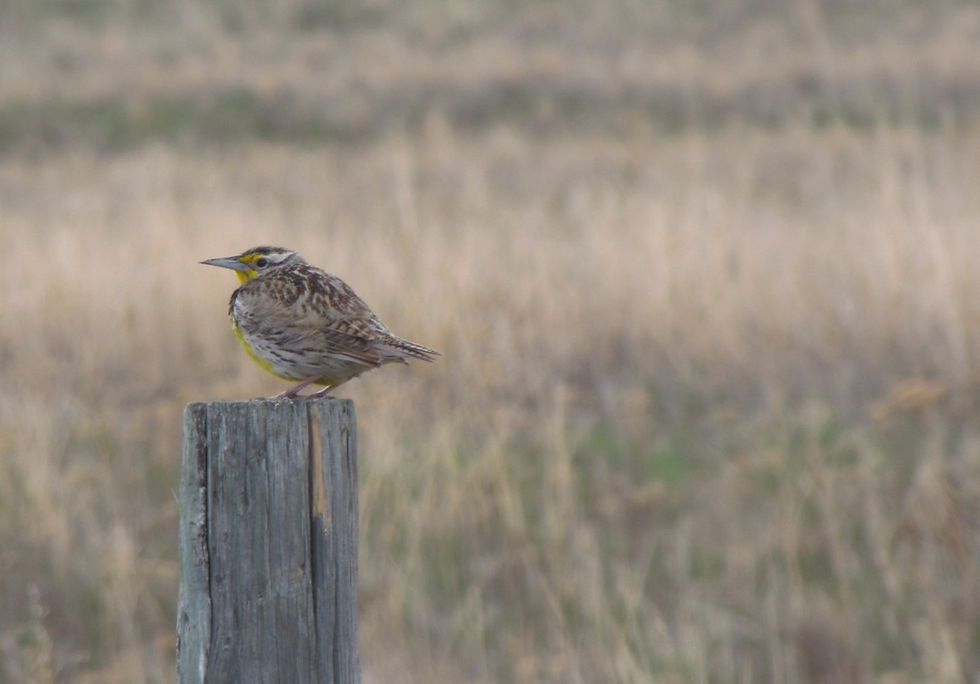The story behind our campaign to protect KELÁ_EKE Kingfisher Forest
- Nov 14, 2022
- 3 min read
By Shauna Doll and Dr. Erin O’Brien

Without protection, this forest will become a residential suburb. Image by Alex Harris
When the Pender Islands Conservancy and Raincoast Conservation Foundation made the decision to purchase what is now known as KELÁ_EKE Kingfisher Forest, we had to act fast. Since the 1950’s when it was last logged, the land had mostly been left alone. However, in late 2021 rumblings began rippling through the Pender Island community: plans to transform the 45 acre forest into a residential suburb were soon to be set into motion. With an approved development plan in place, a road already built, and 15 wells drilled, the “Harbour Hill Subdivision” would have soon claimed this piece of maturing coastal forest and wetland that had so far managed to escape development.

Development plans for what is now known as KELÁ_EKE Kingfisher Forest.
As there are currently limited options available to protect contiguous tree coverage on the Gulf Islands, development of the 15 lots of the Harbour Hills Subdivision would result in significant segments of the forest removed for luxury homes, light, and views. The construction of buildings, along with the installation of their accompanying roads, septic systems, utilities, and amenities, would fragment and convert the native forest; increasing soil compaction, impermeable ground cover and the likelihood of local flooding while reducing groundwater storage, recharge, and water quality. This would degrade habitat for the diverse local community of birds, bats, amphibians, and other species - some of which are threatened or endangered.
Further, due to the property’s location, this would be a car-dependent neighbourhood that would significantly increase traffic along both Razor Point and Harbour Hill Roads, disrupting the rural character of the surrounding community. In a province facing a housing shortage, this sort of unaffordable development would not advance accessible housing options.
KELÁ_EKE Kingfisher Forest as it is today.
Pender Island is no stranger to this type of development. In the 1960’s, over 1,200 city-sized lots were carved into what is now known as Magic Lake Estates. At the time, this was the largest subdivision in all of British Columbia. Magic Lake continues to be one of the most densely developed areas on any of the Gulf Islands. It is largely regarded to be the primary impetus for the inception of the Islands Trust by the province in 1974 to “preserve and protect” the natural amenities characteristic to the islands. With some of the highest rates of private land ownership in the province and a very limited number of undeveloped, large (i.e. >10 acre) lots remaining, land purchase for permanent protection on the Gulf Islands is among the few options to ensure a land base for recovery of the globally rare Coastal Douglas-fir (CDF) forests.
When we contacted the current owners to determine whether they were amenable to selling the property for conservation purposes, we were thrilled to hear that they were willing to work with us - for a multi-million dollar purchase price. When we decided to proceed, we were unsure whether we were asking too much of our community. After all, it had only been a year since we launched our collective campaign to protect the 13-acre S,DÁYES Flycatcher Forest. But we knew we had to try or else see 45 acres of largely intact CDF forest transformed into something unrecognizable.
Over the past 11 months, we have been working tirelessly toward this goal. We are pleased to report that huge strides have been made with over $1.75 million raised so far, due in large part to the matching campaign that is currently underway. We have until the end of 2022 to raise the outstanding $420,000. We are so close to successfully protecting KELÁ_EKE Kingfisher Forest in perpetuity, but we need your help to make it the rest of the way. If everyone who reads this article donates to our cause, we will secure this forest for the future and, in so doing, safeguard the habitat of all the species that call this place home.


